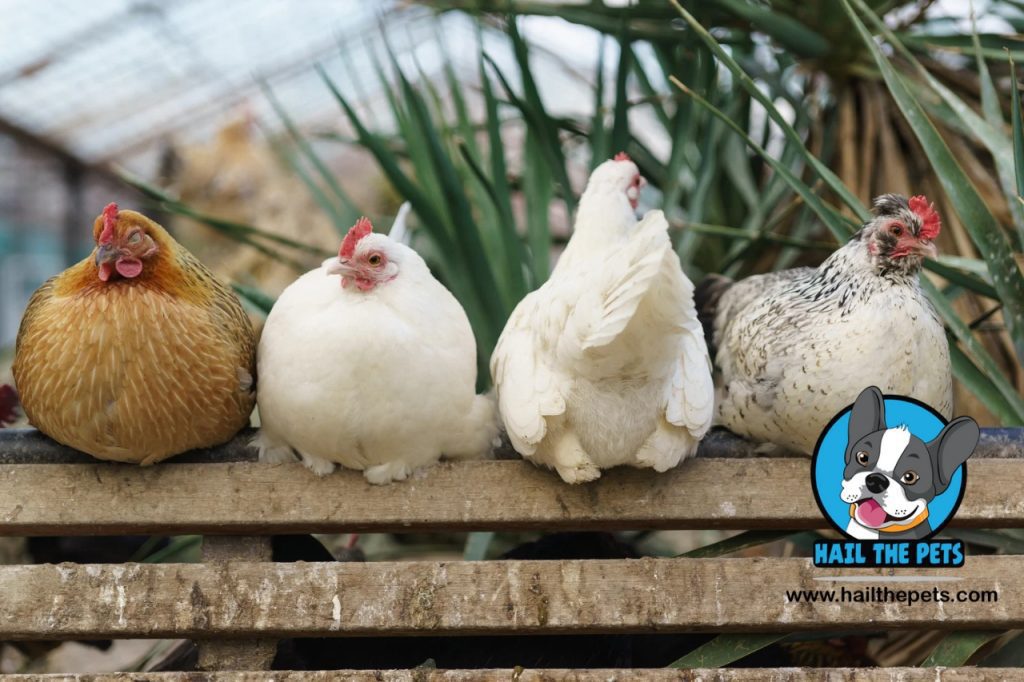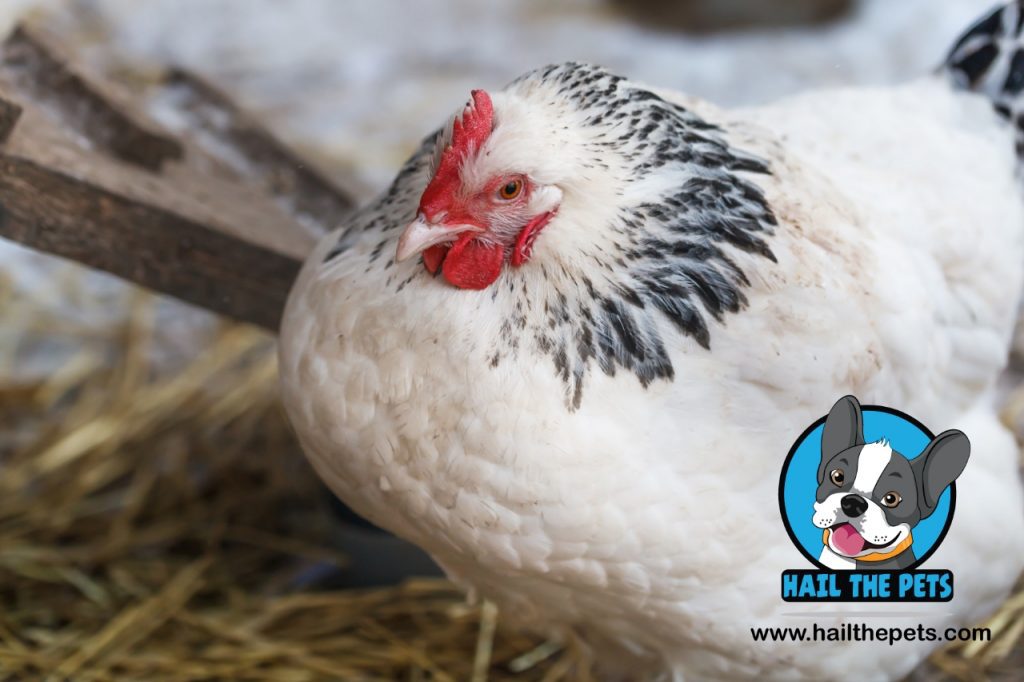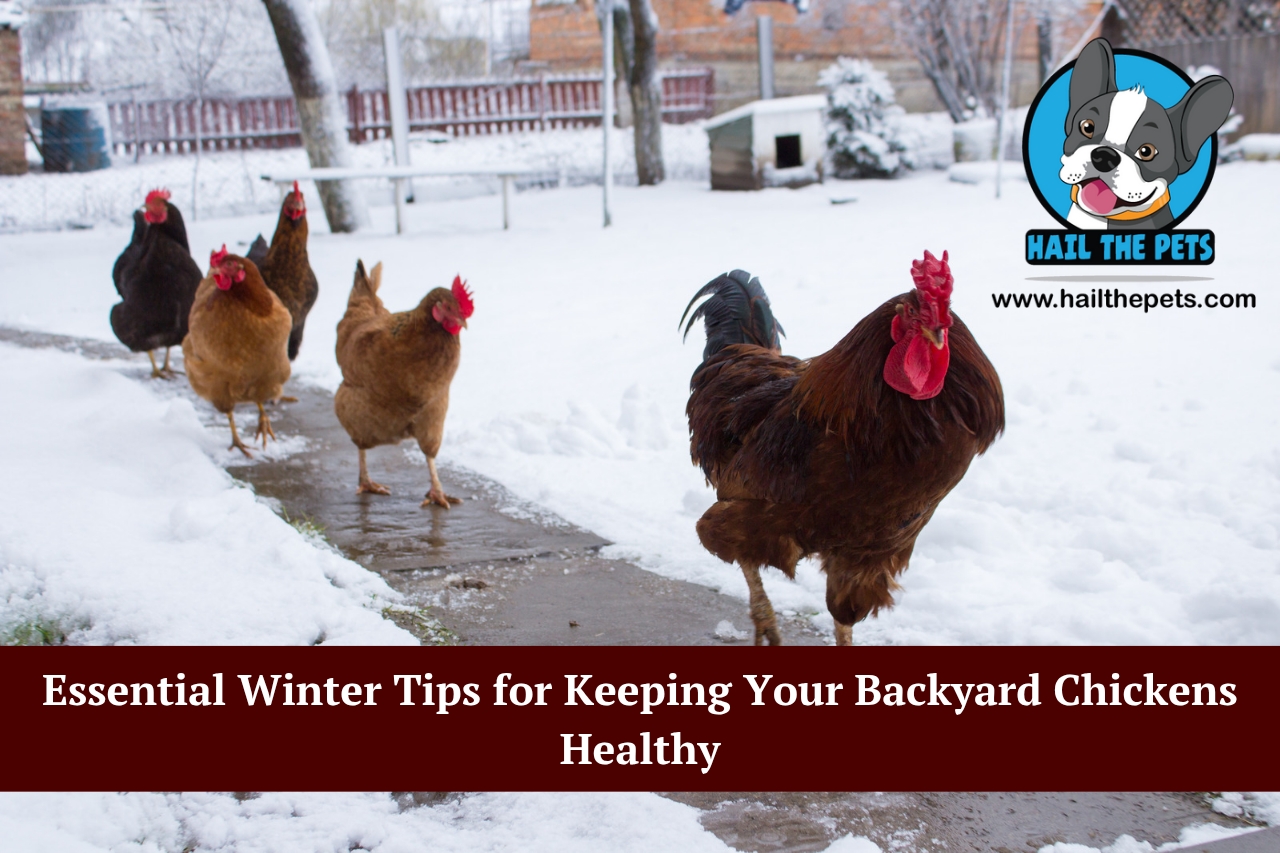The wind of that January morning was good enough to cleave a tree. Midwest winters have a way of doing that- chilly, snarky cold that creeps under your scarf no matter how closely you cling to it.
Sarah splashed across the frozen yard with her boots crunching on the frozen ground, and kicked expertly out of a bucket of hot water that she held in her hand. The coop was in front, half covered by drifts, and muffled clucks and scratches were heard through the wooden walls.
Each winter she would ask herself the same question, Will my backyard chickens healthy and strong enough to survive this one in good health?
If you’ve ever dragged yourself out before sunrise on a subzero morning to check your flock, you know that knot in the stomach. Chickens are tougher than many expect, but winter doesn’t let them coast. Water freezes solid, egg baskets look pitiful, and combs pale and sting with frost.
But here’s the bright side. With foresight, a little elbow grease, and some lessons keepers have been passing down for generations, your flock won’t just survive the cold, they’ll thrive in it.
Read more: Dog Diet Plans for Weight Loss: How to Help Your Overweight Dog Get Fit- July 2025
Winter Care for Backyard Chickens
Plenty of people assume chickens will simply “tough it out.” They’re barnyard animals, after all. And to an extent, they’re right, feathers trap heat like down jackets, and birds roost close to share warmth. But winter stress chips away silently.
Ignore the basics and you risk hard lessons. Birds huddled listlessly in corners, frostbitten combs, or frozen water bowls that leave your hens dehydrated. I’ve been there. One icy dawn I found my flock staring at a block of ice instead of water. Their feathers were puffed, eyes dull. I’ll never forget the guilt of realizing how quickly winter can turn on them.
The real key is consistency. A coop that blocks drafts, reliable water that doesn’t freeze, and energy-rich feed routines keep your hens not only alive, but backyard chickens healthy, productive, and content. Most of it costs little more than time and planning.

How to Keep Chickens Warm in Winter?
One of the first questions new chicken owners ask is: “How do I keep my chickens warm when it’s below zero?” The truth is, you don’t need to transform the coop into a sauna.
Chickens generate heat naturally. When they puff their feathers, they create air pockets that insulate like a sleeping bag. Roosting together multiplies that warmth. The trick is protecting them from conditions that steal heat, wind, dampness, and drafts.
Read more: 10 Fun Brain Games for Dogs: Keep Your Pup Mentally Stimulated and Happy – July 2025
Here’s what works:
- Smart insulation: Stack straw bales along the outer walls, drape old blankets or tarps on the north-facing side, and pile bedding thick inside. Sarah discovered this one especially after a night of howling winds left her hens puffed up like balloons. A couple of quilts hung on the windward side made a dramatic difference.
- Skip the heater: Plugging in a space heater may feel tempting, but it’s more risk than help. Fire danger is real, and birds raised in artificial warmth struggle to adapt to real winter.
- They have faith in their strength: Cold is not the enemy, it is wet drafty air. Keep the coop dry, eliminate direct winds, and your flock will surprise you at how well they tend to cope.
Preventing Frostbite in Chickens
Few things worry a chicken fancier like seeing a comb turn pale or black in a night. Frostbite may seem inhumane, but knowing the causes can prevent it.
Cold, by itself, is not the culprit, though-it is moisture. Chickens breathe hot, wet vapor out, and when the coop is not provided with air holes, the water condenses on combs and wattles and freezes.
The fix? Airflow. Watchers should be high in the coop wall or under the roof and damp air should be allowed to escape without blowing directly on the birds. It seems counterintuitive, cutting holes to fight cold, but it works.
Some keepers add petroleum jelly to combs as a barrier. Sarah once coated her rooster Henry with a layer so thick he looked like he’d gone headfirst into a tub of Vaseline. Silly as it looked, his comb stayed untouched all season.
The golden rule is to keep the coop dry and ventilated, never sealed tight.
Read more: Cat Staring: Why Does My Cat Stare at Me and What It Means- July 2025
Winterizing Chicken Coops
If the flock’s comfort starts anywhere, it’s the coop. Think of it like weatherproofing a tiny log cabin to keep your backyard chickens healthy.
- Check the structure: Patch up cracks, fill gaps, and fix leaky roofs. One drip of meltwater can ruin bedding and leave hens chilled.
- Bedding counts: Pine shavings and straw both insulate and absorb. Sarah sprinkles shredded autumn leaves over hers, the hens dig happily for hours while staying toasty.
- Windbreaks help: Plastic sheeting or plywood against the windward side cuts icy blasts, but never covers up ventilation holes.
A solid, dry, draft-free coop is worth more than any fancy gadget.

Best Chicken Breeds for Cold Weather
Not all breeds are created equal when it comes to winter.
The cold-hardy breeds have small combs (less likely to freeze) and dense feathering. Orpingtons, Plymouth Rocks, and Wyandotte are back-yard varieties of the snow-belt. Sarah had Buff Orpingtons, which walked about like yellow snowballs, and took no notice of the cold.
Her lone Leghorn, though, suffered, her tall comb turned pale and frost-nipped before January was out.
If you’re planning your flock in a northern climate, start with breeds built for the cold. It spares both you and your hens unnecessary stress.
Read more: 10 Best Birds for Apartment Living – December 2024
The Deep Litter Method for Chickens
One of the most useful tricks is the deep litter method. Instead of cleaning out bedding weekly, you layer fresh straw or shavings over the old. As it composts slowly, the process releases gentle warmth.
Sarah hesitated the first year, worried her coop would stink. But with regular stirring and fresh top layers, it smelled earthy rather than foul. The hens adored scratching through it, unearthing seeds or the odd insect. By spring, Sarah had a pile of rich compost ready for her garden.
This method works best in dry climates. Too much dampness leads to bacteria instead of heat. Done right, though, it’s like adding a natural heating pad in the backyard chickens healthy under your chickens’ feet.
Read more: Top 10 Pet Bird Species for Beginners: Easy to Care for and Friendly
Supplemental Lighting for Egg Production in Winter
Come December, egg baskets get lighter. It is a natural process, hens require 14-16 hours of daylight in order to remain consistent in laying and the short days indicate to their body to rest.
If you use eggs, an inexpensive low-watt LED bulb on a timer may solve the problem. The trick is to set it for early mornings rather than evenings. That way, the hens wake earlier but still roost naturally at sunset. Sarah adopted this method last year and her egg count stayed surprisingly steady.
That said, don’t push nonstop production. A winter slowdown is healthy. Aim for a balance: enough eggs to supply your household without overtaxing your hens.
Read more: Winter lighting coop in chicken farm
Keeping Chicken Water from Freezing
Few chores test patience like smashing ice out of a waterer with frozen fingers before sunrise. Chickens can handle cold air, but without water, they weaken fast.
Options include:
- Heated water bases or bowls that keep water just above freezing.
- Insulated containers wrapped in straw or foam.
- Bucket rotation, swapping in fresh, unfrozen water twice daily if you prefer the manual route.
After years of fighting ice with a hammer, Sarah finally bought a heated base. “Best winter money I ever spent,” she swears.
Whatever method you choose, remember: more than a few hours without drinkable water sets hens back quickly.

Feeding Adjustments for Winter Strength
Winter burns through calories. Just like people crave stews and casseroles when it’s cold, chickens need heavier fuel to keep warm.
A few proven tweaks:
- Evening cracked corn: It digests slowly, helping hens generate heat overnight.
- Protein boosts: Sunflower seeds, soybeans, or mealworms strengthen feathers and muscle.
- Warm morning treats: Oatmeal mixed with veggies turns a dreary morning into a flock party. Sarah says her hens sprint toward her like children at recess when they smell the pot.
There is something beyond the nutrition in winter feeding, and that is comfort and this keeps morale up. Continued feeding is also among the simple methods of maintaining your Backyard Chickens healthy throughout the cold seasons.
Read more: Seeds vs Pellets: What to Feed Your Bird – May 2025
A Quick Reality Check
Many new keepers fear the cold above all else. But studies, including work from Michigan State University, show that cold-hardy chickens tolerate freezing weather when sheltered properly. The deadly effect of heat stress, however, is much higher on birds.
Frost mornings can give you a sleepless night but chances are that your chickens are hardier than you can tell.
Read more: Seeds vs Pellets: What to Feed Your Bird – May 2025
Conclusion
Winter chicken keeping isn’t about gadgets or luxury setups. It’s about steady habits, ventilation, dry bedding, reliable water, and thoughtful feeding.
I’ll never forget visiting a neighbor one snow-blanketed January morning. His hens strutted about, curious and lively. Mine, meanwhile, sulked in drafts I hadn’t yet fixed. That morning taught me the biggest truth of all: winter success comes from consistency.
Check out: Botulism in Ducks: Signs, Causes, and How to Treat It- August 2025
As nights stretch long and snow piles high, remember, your flock doesn’t need perfection. They need protection from drafts, drinkable water, and a keeper who shows up daily.
Do that, and you will find out what all experienced chicken keepers realise: backyard hens do not merely survive the winter. With proper care, you will be able to maintain your backyard chickens healthy and vibrant even during the severest cold.
